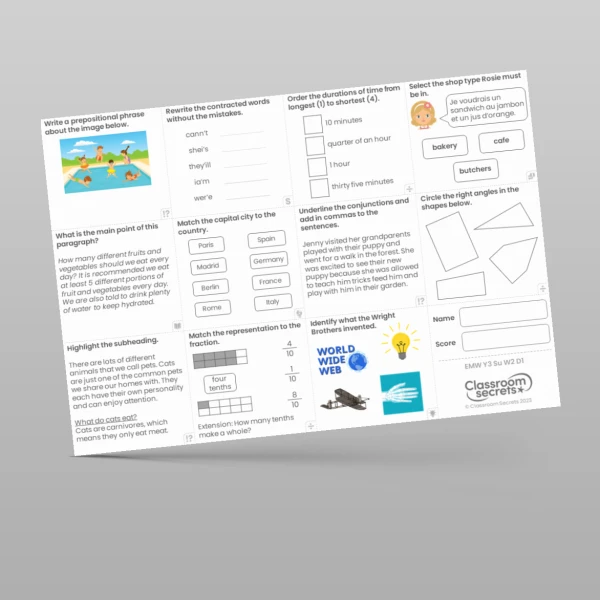

Are you wanting to check how well your Key Stage 2 children can tell the time? This KS2 What is the Correct Time? Reasoning Test Practice is a great resource to use to do just that. The questions are differentiated six ways, meaning you can pitch the questions to the right level for all of your children. Use them to assess current levels of understanding in your class or to fill gaps in their learning. Answer pages are provided with this resource to make your marking as simple as possible.
Curriculum Objectives
- Tell the time to the hour and half past the hour and draw the hands on a clock face to show these times
- Tell and write the time to five minutes, including quarter past/to the hour and draw the hands on a clock face to show these times
- Compare and sequence intervals of time
- Know the number of minutes in an hour and the number of hours in a day
- Estimate and read time with increasing accuracy to the nearest minute; record and compare time in terms of seconds, minutes and hours; use vocabulary such as o’clock, a.m./p.m., morning, afternoon, noon and midnight
Tags
Measurement
Test Practice
1M4a
2M4a
2M4b
2M4c
3M4d
SATs Preparation











